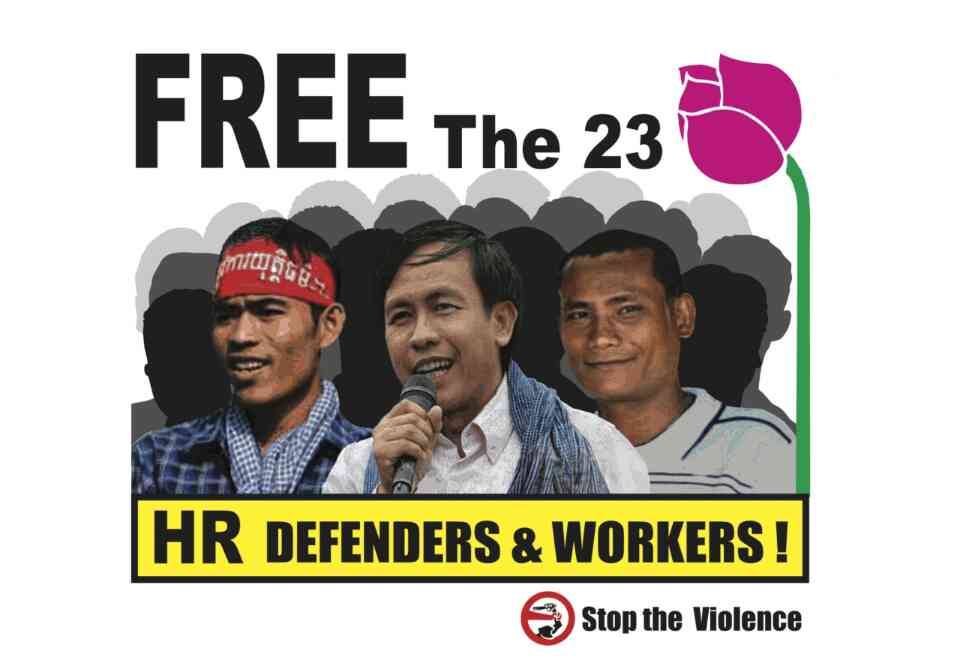WELCOME TO THE ARCHIVE (1994-2014) OF THE MAQUILA SOLIDARITY NETWORK. For current information on our ongoing work on the living wage, women's labour rights, freedom of association, corporate accountability and Bangladesh fire and safety, please visit our new website, launched in October, 2015: www.maquilasolidarity.org
June 3, 2014

Brutal repression by the Cambodian government has failed to deter garment workers from staging protests for a just increase in the minimum wage.
On May 1, close to 1,000 workers and supporters defied a government ban on public assemblies to take part in the annual May Day demonstration in the capital city Phnom Penh.
A union request to hold their May Day rally in Freedom Park had been denied by the government, and when workers arrived at the park, they were confronted by rows of riot police positioned behind razor-wire barricades.
As the protestors were leaving the site, they along with several bystanders and journalists were attacked by about 200 club-wielding government security forces. At least five people were beaten and injured during the attack.
Later that day, the unions organized a march to the National Assembly in an attempt to deliver a petition calling for an increase in the minimum wage from US $100 to $160 a month and demanding that the charges against the 21 detained labour activists and two others that have been released on bail be dropped.
Free the 23
“Free the 23” had become a rallying cry of the worker rights movement in Cambodia, as well as their international supporters, after 23 workers and trade union leaders were arrested on January 3rd and detained in a high security prison at the height of the government’s crackdown against tens of thousands of workers taking part in a nationwide strike that had shut down the country’s garment industry.
On that day, heavily armed government security forces fired on a crowd of protesters, killing five and wounding a number of others.
A wave of repression followed the killings. The striking workers were forced back to work, public assemblies were banned, hundreds of workers were fired for participating in the strike, union leaders were threatened with legal action, and registration of new unions was suspended.
Guilty, but released
On May 30, the 23 labour activists were found guilty of causing violence, but in a surprise move their prison sentences were suspended and those detained were ordered released.
“Twenty-one innocent people were held in an isolated prison under harsh conditions for five months after their arrest despite the total lack of evidence that they committed any crime,” says David Welsh of the Solidarity Center in Cambodia.
While acknowledging the efforts of 30 major apparel brands, including three Canadian companies (the Hudson’s Bay Company, Loblaw and Lululemon), in lobbying the Cambodian government to release the detained activists, Welsh says the brands must make good on their commitment to tackle the underlying cause of worker unrest.
“Workers are protesting because they are being paid starvation wages,” says Welsh. “While today [May 30] is about celebrating families reuniting and innocent people being freed from prison, there won’t be a solution to this problem until the brands are willing to increase the prices they pay their suppliers so that those suppliers can pay the workers decent wages.”